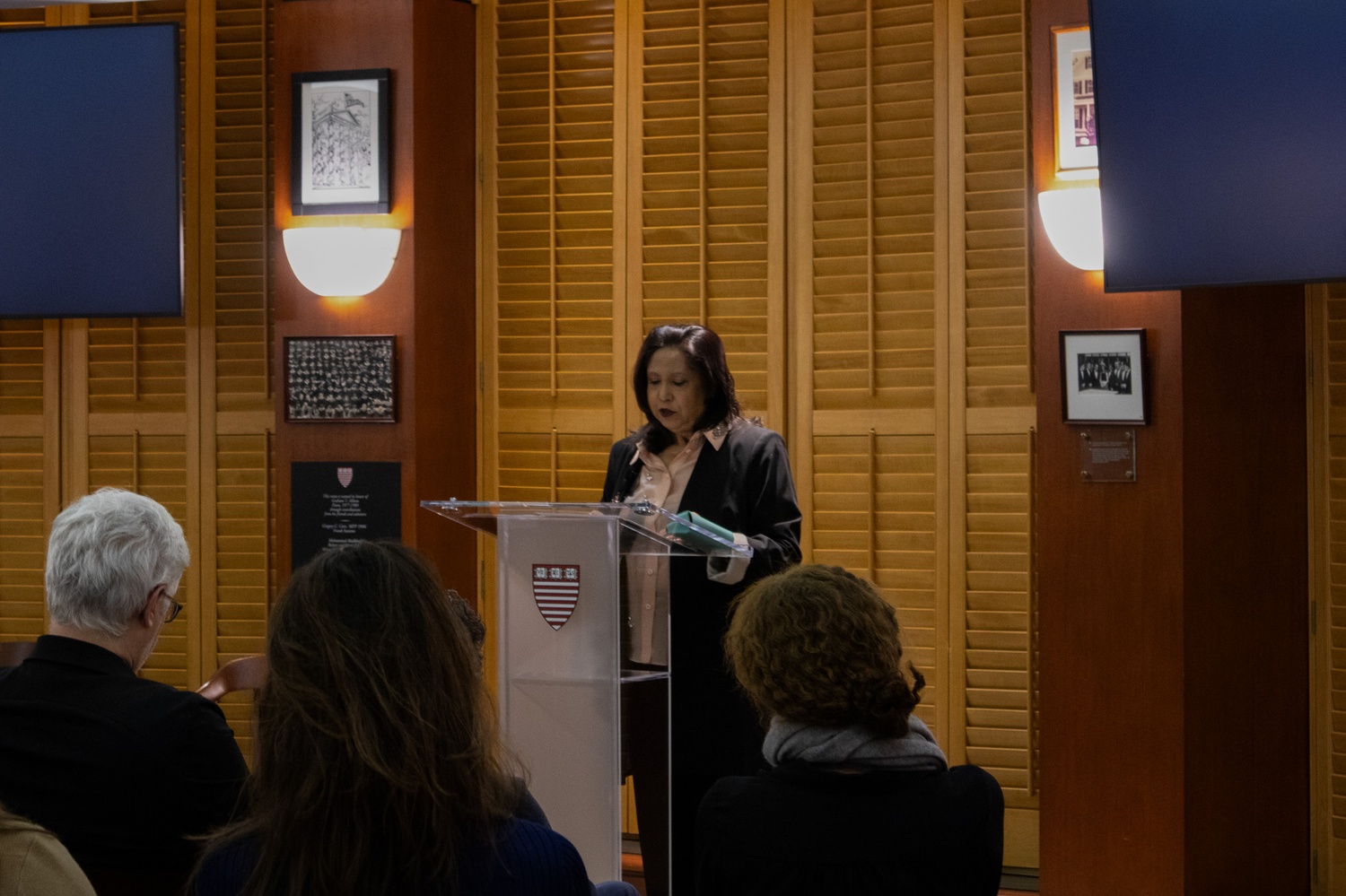
News
Harvard Grad Union Agrees To Bargain Without Ground Rules

News
Harvard Chabad Petitions to Change City Zoning Laws

News
Kestenbaum Files Opposition to Harvard’s Request for Documents

News
Harvard Agrees to a 1-Year $6 Million PILOT Agreement With the City of Cambridge

News
HUA Election Will Feature No Referenda or Survey Questions
UN Representative Talks Conflict-Related Sexual Violence at IOP’s Annual McNamara Lecture

Pramila R. Patten, the United Nations Special Representative on Sexual Violence in Conflict, stressed the urgent need for increased protective measures for vulnerable populations amid crises of sexual violence in conflict zones during the Harvard Institute of Politics’ annual Robert S. McNamara Lecture on War and Peace Monday evening.
The lecture — moderated by Harvard Kennedy School professor Dara Kay Cohen — focused largely on issues of conflict-related sexual violence across the globe and introduced initiatives her office launched during previous years to combat these issues.
“We meet at a time when conflict-related sexual violence is again in our daily headlines, and its recurrence with each new wave of warfare continues to shock the collective conscience of humanity,” Patten said.
Patten gave examples of how numerous ongoing conflicts have affected women of all ages in war zones.
“Young women are being abducted from dormitories and hospitals, shackled, and transported in the back of pickup trucks by fighters to be sold in slave markets in northern Darfur,” she said, referring to the ongoing civil war in Sudan.
“The ages of the victims in Ukraine varied from four to eighty-four years old. The Independent International Commission of Inquiry provided chilling details of sexual violence affecting victims of all ages,” she added.
When touching on the “severe, complex, and neglected humanitarian crisis” triggered by massive displacement in the Democratic Republic of the Congo, she pointed out desperate measures women and girls are taking for survival.
“Women and girls have resorted to carrying condoms when they go outside to carry out livelihood activities in this climate of interlinked physical and food insecurity,” Patten said.
In an interview, attendee Nilufer J. Mistry Sheasby ’28 noted a gender dissimilarity in the room compared to other IOP events.
“I think the gender discrepancy between this and other IOP events was really troubling, because I’ve been to a lot of IOP events, and it is very heavily male, and this room is very heavily female,” she said.
In her speech, Patten also spoke about the legislative accomplishments of her UN office in advancing preventative measures.
“Each and every time I meet survivors, I hear them repeating the same message to me — that what happened to them could have been prevented, and this is what led me, in the discharge of my mandate, to get the 26 UN entities of which the network is comprised to converge,” Patten said.
“Survivors need more than our solidarity,” she added.
Want to keep up with breaking news? Subscribe to our email newsletter.
From Our Advertisers

Over 300+ courses at prestigious colleges and universities in the US and UK are at your disposal.

With innovative financial tools combined with financial education, Collegiate empowers students to take control of their finances and build confidence in their money management skills.

Serve as a proctor for Harvard Summer School (HSS) students, either in the Secondary School Program (SSP), General Program (GP), or Pre-College Program.

With an increasingly competitive Law School admissions process, it's important to understand what makes an applicant stand out.

Welcome to your one-stop gifting destination for men and women—it's like your neighborhood holiday shop, but way cooler.

Admit Expert is a premium MBA admissions consulting company, helping candidates secure admission to top B-schools across the globe with significant scholarships.
